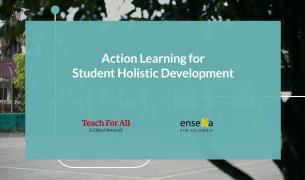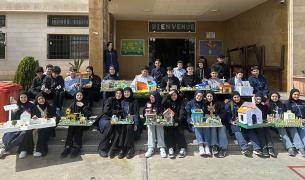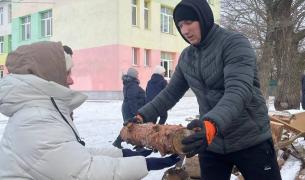A community of hope: Supporting system leaders working to protect education during emergencies
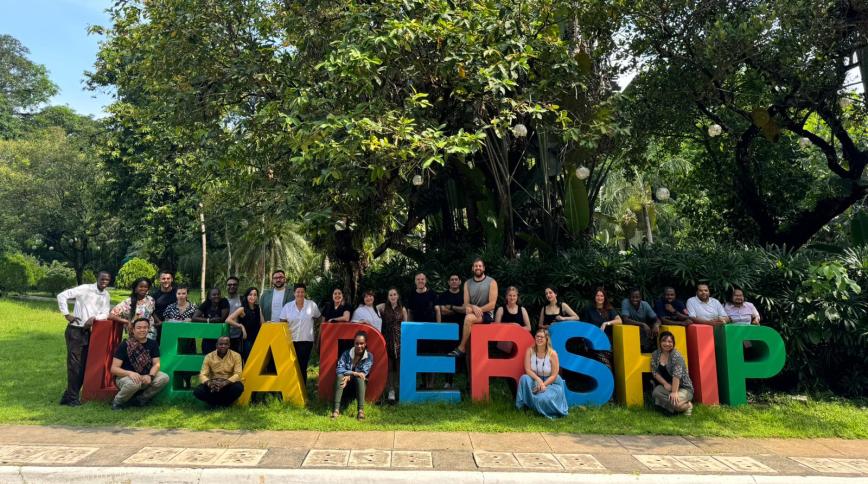
In the humanitarian sector, the work can be relentless, supporting communities to prepare for, respond to and recover from emergencies. When a typhoon hits a town, an earthquake rocks a province, or war threatens and displaces families, humanitarian leaders face daunting challenges. You can feel the crushing weight of the world when bearing witness in the face of crises. Yet, we must ensure that children feel safe, loved, and continue learning amidst crisis. But, how?
This is what led us to form Teach For All's Education in Emergencies (EiE) System Leaders Community, which launched in June. Network alumni from Lebanon, Armenia, Qatar, the USA, Australia, Nigeria, Uganda, Germany, the Philippines, India, Bangladesh, the UK, Kenya, Ukraine, and Poland gathered in Manila, united by our shared experiences working in crisis-affected contexts and our passion for education.
Our diverse experiences led to rich discussions and revealed the systemic challenges we each face as humanitarian leaders working across the EiE sector. As stories unfolded, so did the initial hesitations that each of us carried, with participants sharing reflections such as the following:
- “For me this work is deeply personal - I come from a conflict-affected community. I don't just work with these communities; I live their reality.”
- “The EiE sector remains quite homogenous. Through this community, I hope to learn from a diverse community of like-minded professionals.”
- “At times I feel that my impact is stifled by the scale of needs, and I question my ability to contribute given this. I need to rebuild my ‘sense of possibility’ for what can be achieved in the face of such issues.”
- “I want to be part of a community that recognises the structural inequities that exist in the EiE ecosystem, and to talk about how justice, equity, diversity and inclusion need to be better embedded in EiE work.”
This community we have formed is an example of one of the key solutions to addressing these questions - bringing leaders together to share solutions and learn from each other. This community helped us realize that we are not alone in our commitment to serve our communities. We are, in fact, part of a larger whole. This community was built acknowledging our different cultural contexts, welcoming our unique personalities, and making space for the potential that each person has to offer.
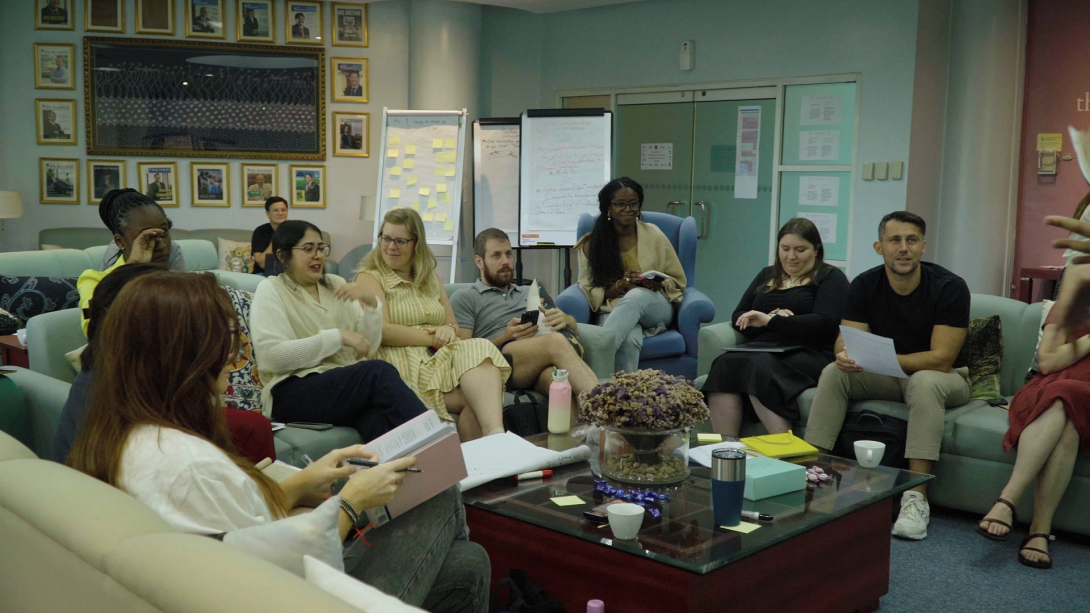
The power of collective leadership
Throughout our convening in Manila the sense of unity and shared purpose was palpable. This gathering wasn't just a meeting of EiE practitioners; it was a catalyst for change, uniting leaders dedicated to transforming education systems in crisis-affected regions. We shared strategies, exchanged ideas, and learned from our respective successes and failures.
One of the community’s most impactful aspects is its emphasis on collective leadership. Effective change doesn't come from a single solution, but from the concerted efforts of many across the ecosystem. This approach is especially vital in education in emergencies, where the challenges are multifaceted, and solutions require diverse perspectives and collaborative efforts.
Mindset shifts for EiE practitioners
Our EiE System Leaders community emphasizes four shifts in leadership mindsets that are essential to best support communities impacted by disasters. We see these lenses as crucial for adapting to the dynamic and complex nature of humanitarian work.
Shift 1: From "I feel alone in my work" to "I am part of a larger whole." Many of us have often felt isolated in our efforts, burdened by the weight of pushing forward alone. This community helps us see ourselves as part of a collective, drawing inspiration and wisdom from those who came before us, a perspective shift that is empowering and rejuvenating.
Shift 2: From "I don’t think about how the humanitarian ecosystem could improve" to "I can see what needs to be disrupted in the current humanitarian ecosystem." Given the fast-paced and rapidly changing nature of our work, it is often difficult to find the time and energy to reflect on the systemic issues that exist within the humanitarian sector. However, this community encourages us to think critically about how the sector is linked to power, race, and neocolonialism. We now feel motivated to help dismantle these problematic structures.
Shift 3: From "I struggle to see beyond what is right ahead" to "I know this is a long game." Many of us have tended to focus on immediate gains and often feel burned out. Being part of this community has reminded us that systemic change takes time, patience and consistent investment. We have all now committed to prioritize building our resilience for long-term change and carving out space to pause, reflect and plan.
Shift 4: From "I think other voices are better placed to influence decisions" to "I have a voice and perspectives that I know can drive change." While many of us are used to being advocates for students affected by crises within our contexts, it’s easy to feel like our voices aren’t unique or compelling enough to influence larger discussions. This community has helped us recognize the value and power of our experiences and stories and helped us feel confident taking our ‘seat at the table’ to drive meaningful improvements in EiE across the board.
An exciting journey of cross-border learning and growth
Engaging with other leaders who shared their stories of resilience and innovation was incredibly motivating. As we all reflect on our experiences at the community launch, we are more convinced than ever of the importance of EiE programming being locally rooted and globally informed. As strong local leaders, we bring deep contextual knowledge of the root causes and impact of a crisis, as well as a rich understanding of the communities we serve. And by being part of Teach For All's global community, we are also able to share solutions across borders and work together to achieve the impact needed in emergency contexts.
By the end of the four-day gathering, we felt uplifted by the warmth of this community. We used to struggle to see beyond what is immediately ahead, but coming together helped remind us that humanitarian work is a long game. Ensuring every crisis-affected child has access to quality, inclusive education is a long-term commitment, but one we are ready to embrace together.

